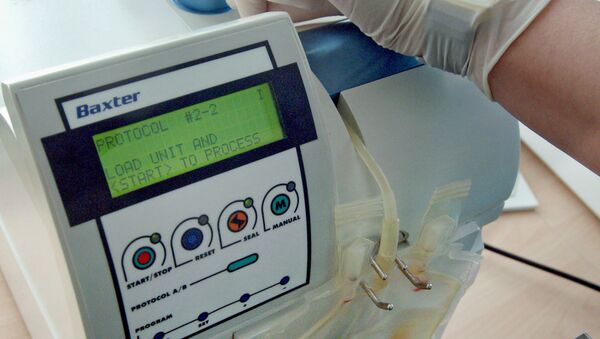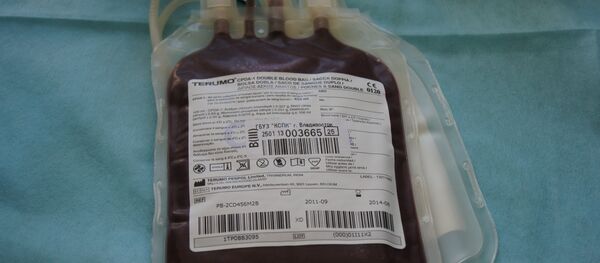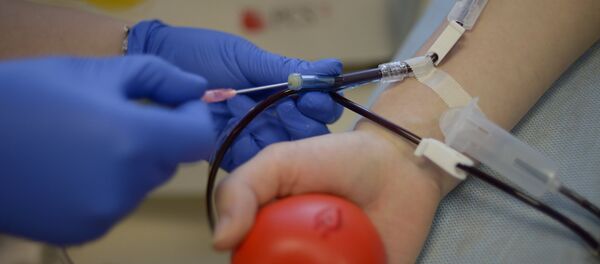Earlier in the week, the agency said it decided to change the period of abstention from sex for homosexual male donors to one year. The agency's guidelines recommend deferral for men who have had sex with another man even once since 1977.
"Drafting guidance documents [related to restrictions on donors' deferrals] does take time, but our goal is to issue it as quickly as possible in 2015," FDA spokesperson Tara Goodin said.
Goodin said that the FDA considered a variety of epidemiological data, the results of several studies conducted since 2010 and information from statistical modeling of the potential effects of a policy change.
Health services commonly justify bans against gay blood donors, citing the statistically higher prevalence of HIV and hepatitis among homosexual men. The proponents of a lifetime ban argue that the policy of indefinite deferral for gay men reduces the chances that a person would unknowingly donate blood during the "window period of the virus," pointing out that there is always a risk of false negative results.
However, researchers knew little about the deadly HIV back in 1983, when the policy was first introduced by the FDA.
Many LGBT organizations view the ban on blood donation by homosexuals as a form of discrimination unrelated to valid medical data. They emphasize that all blood donations are thoroughly tested for HIV, Hepatitis B and Hepatitis C.
Many countries require directly questioning male donors about their sexual history, but the length of deferral varies. Some countries such as Chile, Italy, Spain, Mexico, Poland, Portugal, Russia and several others have no restrictions on gay donors at all.




